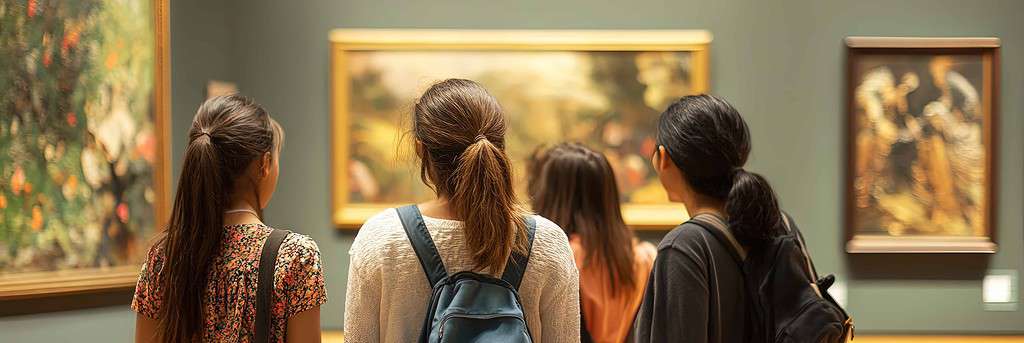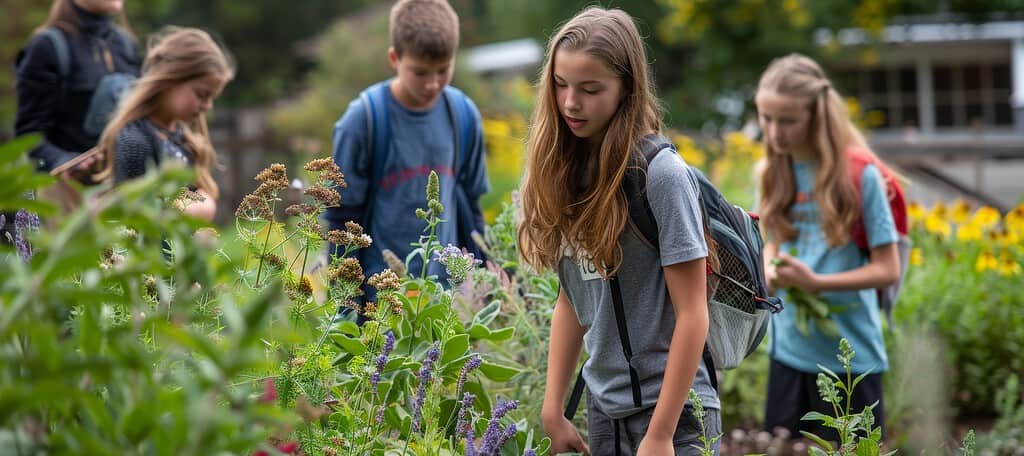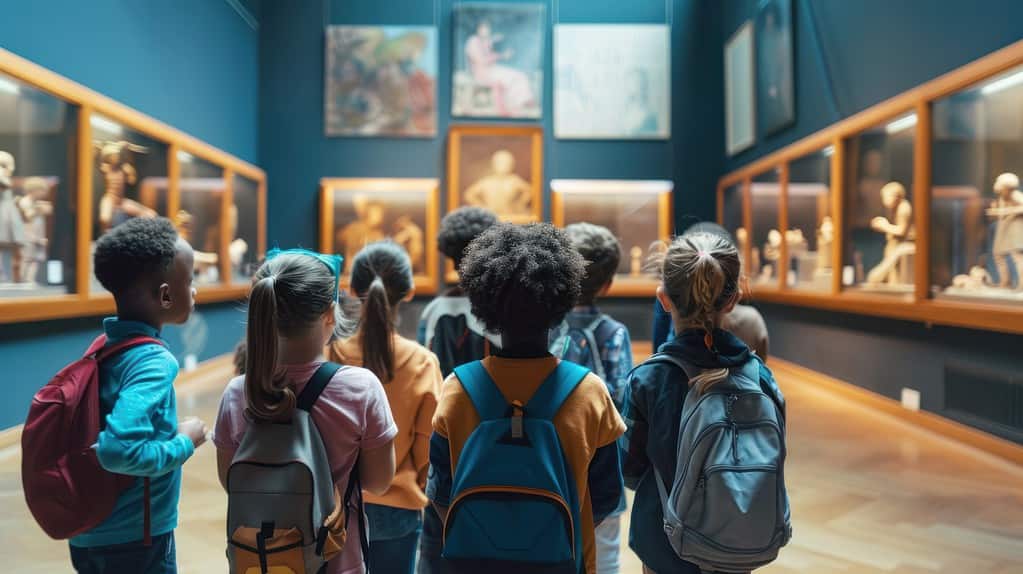Table of Contents
In recent years, the significance of school trips has gained even more recognition, particularly in an era where educational methods are evolving. Schools now strive to create comprehensive learning experiences that extend beyond conventional teaching methods. As education systems adapt, the necessity of incorporating real-world experiences into curricula has been increasingly acknowledged. This paradigm shift aims to create a more engaging and effective educational environment for students.
The importance of school trips is underscored by numerous studies that show experiential learning significantly enhances students’ understanding and retention of information. For instance, a visit to a science center can transform abstract scientific concepts into tangible experiences that students can relate to and remember. This hands-on approach not only makes learning enjoyable but also serves to reinforce the relevance of their studies in the real world.
Are school field trips still a thing?
School trips foster a sense of curiosity and inquiry. When students step outside their usual environment, they are often exposed to new ideas and perspectives that challenge their preconceived notions. For example, visiting an art museum can inspire students to explore their own creativity, while a trip to a historical site can prompt questions about past events and their relevance to current societal issues.
Furthermore, educational trips often encourage teamwork and collaboration among students. Many excursions involve group activities that require students to work together towards a common goal, such as completing a scavenger hunt in a museum or collaborating on a science project during a field trip. These cooperative tasks help develop essential social skills and teach students the importance of communication and teamwork in achieving shared objectives.

In addition to enhancing academic knowledge, school trips often provide students with the opportunity to engage in physical activities. Many trips include outdoor adventures that promote physical fitness, such as hiking, kayaking, or exploring nature reserves. Such activities not only contribute to students’ physical well-being but also help them develop a love for nature and an appreciation for the environment.
Moreover, the exposure to diverse cultures and lifestyles during trips fosters global awareness in students.

For instance, trips to different regions or countries allow students to experience cultural differences firsthand, enhancing their understanding of global issues and the importance of cultural sensitivity. This broader perspective is essential in today’s interconnected world, where understanding and respecting diversity is crucial.
From a psychological perspective, the excitement and anticipation surrounding school trips can also have a positive impact on students’ mental health. Planning for a trip, discussing it with peers, and reflecting on the experiences afterwards can create a sense of belonging and community among students. This social aspect can alleviate feelings of stress or anxiety, providing students with a break from their regular routines.
Additionally, school trips often involve learning about local communities and their histories, which can enhance students’ civic awareness and responsibility. By engaging with different communities, students gain insight into social issues and challenges faced by those around them, encouraging them to think critically about their role in society.
In some cases, school trips may also involve volunteering or community service, which can further foster a sense of social responsibility and empathy. Participating in such activities allows students to contribute positively to their communities while developing a greater understanding of the challenges faced by others.
The impact of school trips on personal development is profound. Engaging in activities that push students out of their comfort zones helps build resilience and adaptability. For example, navigating unknown places or engaging with strangers can enhance their confidence and prepare them for similar situations in adulthood.

Lastly, the memories created during school trips often last a lifetime, contributing to a positive school experience that students carry with them into adulthood. These experiences are not only educational but also form the basis of cherished friendships and unforgettable moments that shape their narratives.
School trips, often regarded as a break from the traditional classroom setting, play a crucial role in the holistic development of students. These excursions are not merely outings but structured experiences that contribute significantly to personal and academic growth. By stepping outside the confines of the classroom, students are exposed to real-world applications of their studies, fostering a deeper understanding and appreciation of the subject matter. This analysis delves into the multifaceted benefits of school trips for pupils, highlighting how these experiences are pivotal in nurturing well-rounded, informed individuals.
Educational Benefits
Real-world Learning:
School trips bridge the gap between theoretical knowledge and practical application. Visiting historical sites, science museums, or art galleries allows students to experience firsthand what they’ve learned in textbooks, enhancing their understanding and retention of information. Such immersive experiences make learning more engaging and memorable.
Trips are often designed to complement the curriculum, providing students with a unique perspective on their studies. Whether it’s a visit to a geological park that brings earth science to life or a theater performance that enriches literature lessons, these experiences deepen students’ comprehension and stimulate their curiosity.
Critical Thinking and Problem-Solving:
Being in a new and unfamiliar environment challenges students to think on their feet. They learn to navigate challenges, ask insightful questions, and apply critical thinking skills in real-time, which are invaluable skills in both academic and life contexts.
Social and Personal Development
Social Skills:
School trips offer a platform for students to interact with peers outside the conventional classroom setting, fostering friendships and enhancing social skills. The shared experiences help build a sense of community and belonging, important for emotional well-being.
Independence and Responsibility:
Away from the structured school environment and the immediate oversight of parents, students learn to manage themselves, make decisions, and take responsibility for their actions. These experiences promote independence, self-reliance, and confidence.
Cultural Awareness and Empathy:
Visiting places with cultural, historical, or environmental significance exposes students to diverse perspectives and ways of life. This exposure is crucial for developing empathy, respect for diversity, and a broader understanding of the world around them.
Personal Interests and Career Aspirations
Inspiring Passions: Trips can spark new interests and passions in students by exposing them to subjects and activities they might not encounter in the classroom. This inspiration can influence future academic choices and career paths.
Career Exploration: Educational trips to corporations, manufacturing plants, or scientific research centers provide insight into various professions, helping students make informed decisions about their future careers and studies.
In conclusion, school trips serve as a vital extension of traditional education, offering numerous benefits that are instrumental in shaping students’ academic and personal development. These excursions provide opportunities for real-world learning, foster social skills, and promote independence, responsibility, and cultural awareness. As educational settings continue to evolve, the integration of school trips into curricula will remain essential in nurturing well-rounded individuals who are prepared to navigate the complexities of the modern world. The experience, knowledge, and friendships gained through school trips are invaluable components of the educational journey, making them an indispensable part of student life.

School trips are a vital component of education that extends learning beyond textbooks and classrooms. They offer a dynamic and interactive environment where academic lessons are brought to life, and personal skills are developed. These experiences contribute significantly to the educational journey, preparing students not just academically but also socially and personally for the challenges of the future. By fostering an appreciation for diversity, instilling a sense of independence, and igniting new passions, school trips play an indispensable role in shaping well-rounded, informed individuals ready to contribute positively to society. The importance of these trips cannot be overstated, as they enrich the schooling experience in innumerable ways, making learning a more enjoyable and impactful adventure.